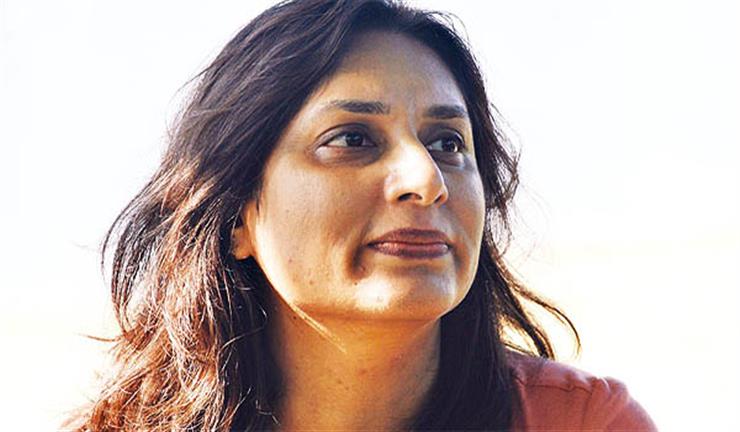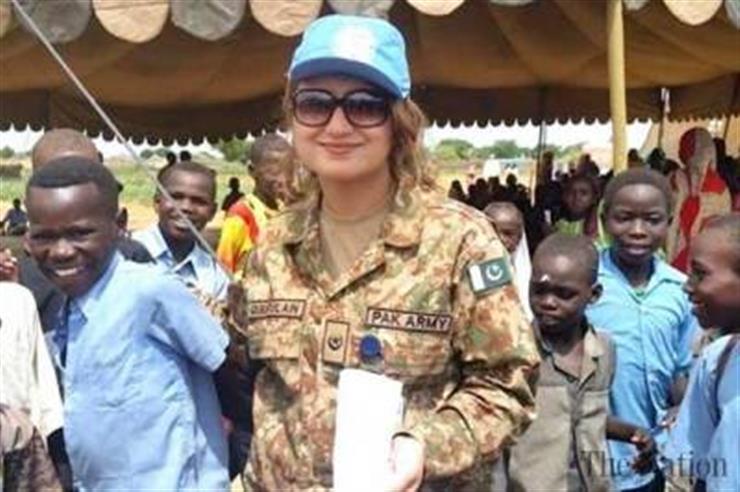Bina Shah
A senior journalist from Islamabad, Pakistan
IN January 2020, the first-ever female Pakistani UN peacekeeping team received recognition for serving in the Democratic Republic of Congo (DRC), known as one of the most dangerous war fronts in the world for women. Pakistan’s original 15-strong female engagement team (FET) included psychologists, logistics officers, medical officers, information officers and other workers; 17 more women joined them in February.
Studies show that women’s presence in peace processes ensures more stability in post-conflict countries. The inclusion of Pakistani Muslim women in humanitarian work transforms the field from a north-south or east-west equation into a global approach where people help people, no matter what their gender or where they are from. May 29 was the International Day of UN Peacekeepers; it is the perfect time to recognise how Pakistani women are changing the gender balance of humanitarian work in conflict zones through their courage and leadership.
One of the most notable members of the team is Major Samia Rehman, an operational planning officer who won the UN Special Representative for Secretary General Certificate in 2019. The Pakistani women who received UN medals in South Kivu this January proved that the cultural and social constraints with which they grow up in Pakistan, limiting their opportunities to serve humanity, are no longer to be taken as an unchangeable norm.
Women peacekeepers provide services for problems that affect women and children directly during war: counselling for sexual violence and abuse; vocational training so women can learn first aid, computer skills, and other skills to increase their standing in the community. They establish medical camps that can help women and children whose medical and psychological needs are often overlooked during times of conflict. The Pakistani women in the FET proved their leadership by doing all this and more, even training female staff of police and army in the DRC.

Writer of this article Ms Bina Shah, a senior journalist from Islamabad, Pakistan
Another Pakistani humanitarian worker, Shabnam Baloch, has served in the wars in Yemen and South Sudan. The extreme conditions of war gave her the courage to break the constraints of her conservative upbringing, serving as a role model for other Pakistani women who aspire to take part in the vital work of peace and conflict resolution.
Baloch joined Oxfam International in Islamabad as head of Sindh mission from 2012-2014. She was responsible for aid delivery in Sindh during the super-floods in 2012 which devastated the region and rendered thousands homeless. Yet in Pakistan Baloch had to still operate under the kind of limitations that Pakistani society places on women — engendering in them many fears, doubts, and lack of self-confidence — that men are not subject to. So when an opportunity arose for Baloch to rejoin Oxfam in 2018 and work in Taiz, Yemen, coordinating humanitarian aid to civilians affected by the war between Houthi rebels and the Saudi-led Arab coalition, she accepted the mission.
The work in Yemen was grueling and dangerous. Baloch and her colleague had to negotiate with the Arab Coalition to stop the bombings for long enough that they could deliver vital food and medicine. She also negotiated with the Houthi rebels, who did not take kindly to having to deal with a woman aid worker at first. But they got used to her presence, and after a year, would often promise her protection and help if she needed it during her missions in their territory.
After a year in Yemen, Baloch was promoted and made deputy country head in South Sudan, an area where there was no active conflict, but the Oxfam offices were located in rebel areas. Her job here was also to coordinate relief for people affected by warfare. The tenor of violence changed; in Yemen, there was open conflict but the warring sides still followed some rules of conflict, treating prisoners humanely. In South Sudan, Baloch says, there were no such conventions.

Pakistani female army members on peacekeeping mission in in Congo
Baloch says that once she was posted to Yemen and South Sudan, her presence gave inspiration to colleagues in Pakistan, who now also request being sent to conflict zones. The inclusion of women in these international humanitarian efforts is being matched in some places by the participation of women in peace and reconciliation efforts on the ground. In South Sudan, many religious and community leaders are women, representing their counterparts and ensuring that women-centered needs are included in peace treaties. Baloch was part of a group of women leaders who initiated a South Sudan women humanitarian leaders’ network to tackle issues related to sexual exploitation and exclusion.
Baloch wants greater recognition for Pakistani women’s roles in this arena. “There are many Pakistanis in South Sudan from all over the nation, but few women. They socialise through Skype groups and WhatsApp chats, but they forget that women are also a part of their communities and should be included in their discussions.”
Studies show that women’s presence in peace processes ensures more stability in post-conflict countries. The inclusion of Pakistani Muslim women in humanitarian work transforms the field from a north-south or east-west equation into a global approach where people help people, no matter what their gender or where they are from. May 29 was the International Day of UN Peacekeepers; it is the perfect time to recognise how Pakistani women are changing the gender balance of humanitarian work in conflict zones through their courage and leadership.
The writer is the author of Before She Sleeps.
Twitter: @binashah
(First published The Dawn, Pakistan)